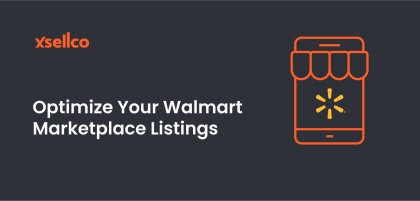Mobile e-commerce is on the rise. According to eMarketer estimates, spending through smartphones and tablets accounted for 34.5% of total U.S. e-commerce sales in 2017.
It’s expected to reach 53.9% in 2021, passing out desktop as consumers’ preferred device for online shopping, which means it’s more important than ever to have a mobile-friendly e-commerce site.
Consumer expectations are growing every day, thanks to better technology and faster internet speeds, and sellers that can’t keep pace will see their sales suffer.
Look at it this way: the longer you leave it to optimize your site, the worse off you will be.
Here’s a quick breakdown of what you need to do.
Why a mobile-friendly site is a must
If you’re on the fence about whether or not you need a mobile-friendly e-commerce site perhaps this statistic will change your mind: more than half (58 percent) of shoppers abandon their carts right before checkout, according to a recent survey by MEF Mobile Money Report.
Roughly three-quarters of Americans (77 percent) now own a smartphone, 62 percent of which have bought something online using a mobile device in the last six months. That number could be a lot higher if fewer people abandoned their carts before crossing the finish line.
What’s causing these lost m-commerce sales? Several studies have pointed to slow-loading mobile sites as the main culprit. And consumers have high expectations: Google discovered that 53 percent of mobile site visits are abandoned if pages take longer than three seconds to load.
If you’re unsure whether or not your e-commerce site is mobile-friendly, Google has a free, easy-to-use tool. Just enter a page URL to see how it scores.
It’s not just speed—mobile shopping carts are abandoned for a variety of reasons
Why would someone browse an e-commerce site on a small smartphone screen, adding items to their cart, only to leave them behind and not complete the purchase?
Here’s why:
- Slow-loading websites
- Safety concerns
- Pop-ups or overlays getting in the way
- Lengthy forms that need to be filled out
- Having to create an account before purchase
- No digital wallet options
The good news is that most of the reasons that put people off their purchase are easy to fix. Here are a few suggestions to optimize your e-commerce site for mobile devices.
Big buttons
Remember, most people use their thumbs to scroll through their phone. So, the first thing to do is ensure that any buttons are bigger. This will stop shoppers from hitting the wrong thing, ending up in the wrong place and giving up in frustration.
Call-to-Action
A call-to-action is essential and there should be a very clear one through every stage of the process. Whether it’s “buy now,” “check out now” or something similar, your customer should not be confused about how to progress through your site.
Good content
If the imagery and overall appearance of your mobile e-commerce site don’t look professional, consumers will suspect you’re running a scam and won’t trust you. Stepping up your game will not only change how other people see you and improve trust levels, it’s also good from an SEO perspective as Google ranks search results based on original, engaging content and a low bounce rate.
It’s worth remembering that attention spans have shortened and people prefer small, easily digestible pages, so every word needs to count and make an impact. Your content needs to always direct toward your call-to-action and your images should not blur or pixelate when zoomed in or on mobile.
Improve the registration process
By the time people get to the checkout they’re ready to buy, but a lengthy registration process could (and does) put them off. One way to get around this is to create a guest checkout so they don’t have to input as many details and can still purchase from you without too much hassle. Then, once the order has gone through, offer the option to create an account.
Make it secure
It’s important to have an SSL certificate (a digital ID card that verifies a site as authentic) for a number of reasons, but a big one is that it helps reassure customers that their credit card details and any other personal information will be safe on your site.
Quick checkout
Offering consumers the choice to pay for their purchase with a digital wallet is another way to speed up the checkout process. Look at Amazon’s 1-Click: it lets customers buy things with just one click, without having to enter and re-enter billing, payment or shipping information.
Digital wallets such as Apple Pay, Visa Checkout and Paypal One-Touch hold your customer’s preferred credit cards securely, can be used quickly and safely whenever they want to pay for something and can triple conversion rates.
The bottom line
Smartphones and tablets account for more than half of all e-commerce traffic. Not only will mobile-friendliness have a significant impact on your ranking in Google search results, it will provide consumers with a better user experience.
Make the most of your mobile e-commerce site—and the new customers it’s sure to pull in—by asking satisfied shoppers to leave you a review. After all, 85 percent of consumers trust online reviews as much as personal recommendations. So if a consumer needs one more push to purchase something on your shiny, new mobile-friendly site, a bunch of 5-star reviews will likely do the trick.
Our Feedback software helps increase your seller scores by sending smart, selective requests that get you positive reviews and grow your sales. You can tailor your strategy to target orders by SKU, on-time delivery, destination and more, so you only ask for feedback on the right products from the right customers.
Target positive feedback with xSellco
Try it free today
Free for 28 days. No credit card needed.








